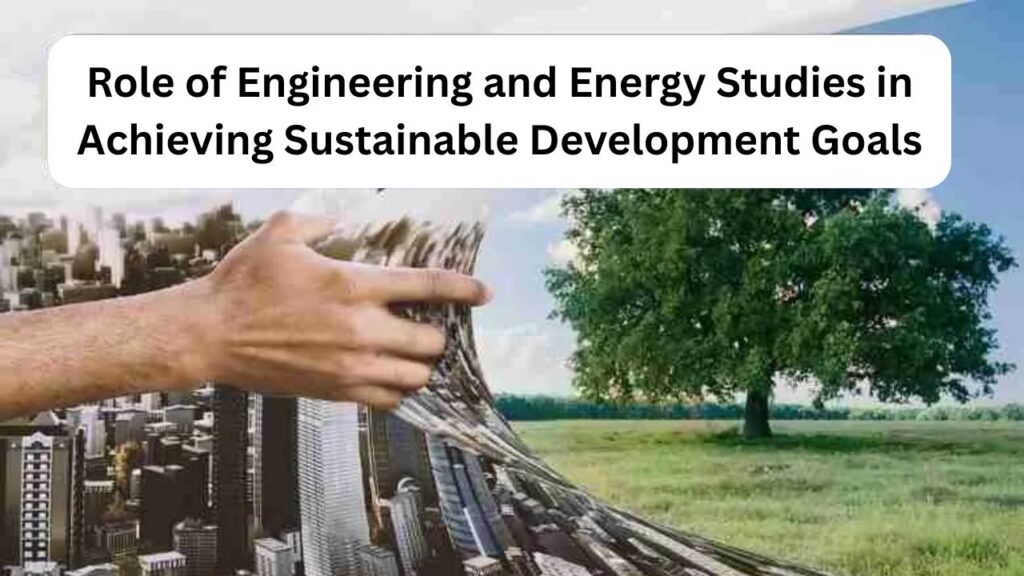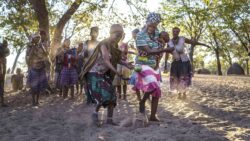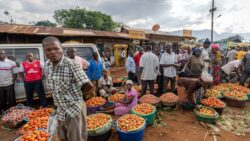The Sustainable Development Goals (SDGs) represent a global commitment to ending poverty, promoting health and education, and ensuring environmental sustainability by 2030. While each goal is distinct, they all require strong technical foundations — especially in the areas of engineering and energy. For Africa, achieving these goals depends heavily on building local capacity in these fields. That’s why the ARISE II Programme is placing a strong emphasis on academic mobility and research in engineering and energy studies.

The Africa Regional International Staff / Student Exchange (ARISE II) initiative connects scholars and institutions across four African regions to strengthen expertise in high-impact disciplines. Among these, engineering and energy are critical to supporting everything from clean water access and agricultural development to renewable power systems and disaster resilience.
Engineering Solutions for Africa’s Growth
Engineering is central to almost every infrastructure project that supports development. Roads, irrigation systems, health facilities, bridges, and digital networks are all designed and maintained through engineering talent. However, the shortage of trained professionals in many African countries poses a significant barrier to sustainable growth.
Through ARISE II, Master’s and PhD students in engineering disciplines are offered mobility opportunities to collaborate on real-world projects. These include:
-
Designing affordable housing for rapidly growing urban populations
-
Building smart irrigation systems for water-scarce regions
-
Developing tools for remote medical diagnostics
-
Improving transportation systems in rural areas
-
Creating technologies that reduce pollution and waste
These projects are often interdisciplinary, involving collaboration with health, agriculture, and environmental experts. This ensures that engineering solutions are practical, cost-effective, and tailored to local needs.
Participants return from their mobility programmes not just with academic credentials, but with hands-on experience in applying their skills to address urgent challenges on the ground.
Energy Access: A Gateway to Development
Energy is the engine behind economic activity, education, healthcare, and communication. Yet in many African regions, access to reliable electricity remains limited or inconsistent. The ARISE II programme encourages advanced research in sustainable energy, with a focus on renewable resources such as solar, wind, hydro, and bioenergy.
Students and researchers explore:
-
Solar mini-grid deployment in off-grid villages
-
Affordable battery storage solutions
-
Efficient cooking technologies to reduce deforestation
-
Green energy models for rural clinics and schools
-
Policy frameworks for renewable energy expansion
These energy studies directly support SDG 7: Affordable and Clean Energy, while also contributing to SDGs related to education (SDG 4), health (SDG 3), and climate action (SDG 13).
One of ARISE II’s strengths is its focus on local innovation. Scholars work within African contexts, studying local weather patterns, material availability, and social behavior to design energy systems that are both effective and acceptable to the communities they serve.
Driving Long-Term Impact Through Mobility
By supporting cross-border academic exchange, ARISE II ensures that African countries learn from each other’s energy and engineering successes. A solar irrigation project in Kenya might inform similar efforts in Malawi. A bridge design from Uganda might inspire better rural infrastructure in Mozambique.
More importantly, these scholars become leaders in sustainability and technology development. They publish new research, train future engineers, and influence policy decisions. Their work lays the foundation for energy-secure, climate-resilient communities.
In summary, engineering and energy studies are not optional — they are essential to Africa’s sustainable development. ARISE II plays a transformative role by supporting the next generation of innovators who are turning the vision of the SDGs into reality — through knowledge, mobility, and action.




